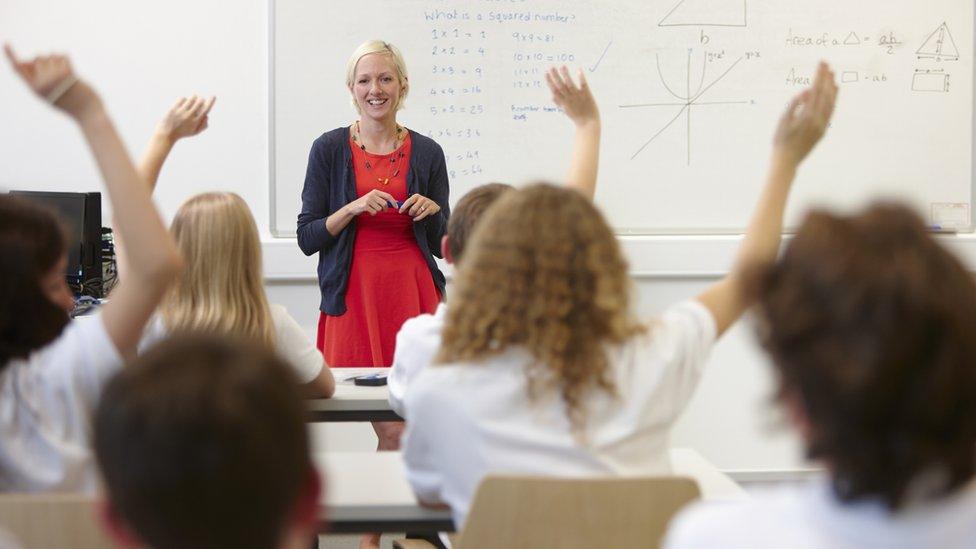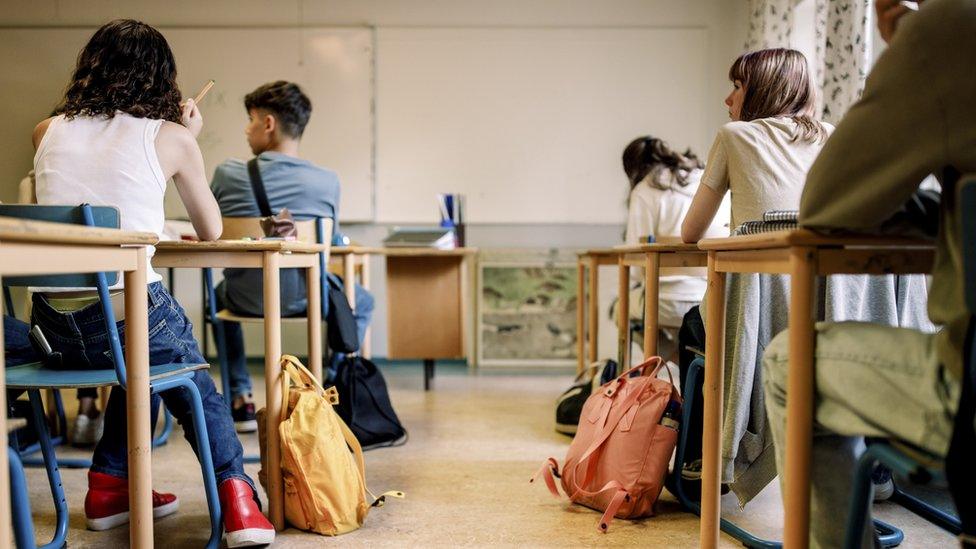NI Education: Sex education guidance expanded for schools
- Published

Expanded guidance to schools on teaching pupils about topics like pornography, sexually transmitted infections (STIs), periods and transgender issues has been published.
The guidance is from the Council for the Curriculum, Examinations and Assessment (CCEA).
The age-appropriate guidance is not mandatory for schools.
However, it is aimed at providing teachers with information and lesson plans for teaching RSE.
The updated information is part of CCEA's expanded Relationships and Sexuality Education (RSE) resources.
Each school in Northern Ireland is required by the Department of Education to teach RSE to pupils.
However, what is actually taught about RSE is a matter for each school to decide based on their school ethos.
That has previously been criticised by some experts who have said it leads to "different and inconsistent learning experiences" for pupils.
However, a recent report from the Education and Training Inspectorate (ETI), while critical of aspects of how RSE was taught in Northern Ireland, did not recommend a mandatory curriculum.
'Opinions differ'
An updated and expanded range of information and resources for teaching RSE has been published online by CCEA.
In introductory notes to the resources, CCEA said that "opinions differ on many aspects of relationships and sexuality and are often strongly held".
"We plan to review the content of our resources regularly," it continued.
"Teachers should also review resources before using them to check that they're appropriate for their pupils and in line with their school's ethos and RSE policy."

Further guidance about how to teach pupils about domestic violence is to be published in June.
The guidance is extensive and includes topics like consent, online safety, abortion, menstrual wellbeing, contraception, male privilege and misogyny and LGBTQ+ matters.
It includes a new unit on the impact of online pornography for post-primary pupils.
"Pornography is often violent and degrading," the guidance said.
"It can give young people unrealistic expectations of sex in a relationship."
"It can also affect a young person's self-esteem, as it may create a distorted view of body image and self-worth."
There are also new lesson plans to teach pupils about period dignity.
'Each child's uniqueness'
Previous research by CCEA suggested that periods should be talked about more often in schools "to remove the stigma around periods and period poverty".
The LGBTQ+ guidance for primary schools said that "RSE in primary schools should focus on appreciating each child's uniqueness".
It includes guidance for schools on how to challenge homophobic bullying and how to support "transgender or gender-questioning children".
"Research shows that transgender young people become aware that their assigned birth sex is different from their gender identity between the ages of three and five," it said.
"Transgender young people start to understand their feelings and talk about them between the ages of six and 16."
The guidance provides a link to research into the experiences of transgender young people in Northern Ireland funded by the Office of the First Minister and Deputy First Minister in 2013.
Separate research published by the Department of Education in 2017 suggested that two-thirds of lesbian, gay, bisexual and transgender young people did not feel welcomed in their post-primary school.
Further guidance to schools on teaching pupils about domestic and sexual violence and abuse, and masculinities and role models is expected to be published by CCEA next month.
- Published3 May 2023

- Published17 December 2021
